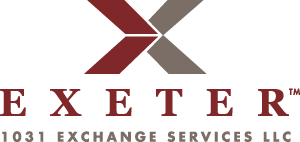1031 Exchange of Aircraft and Aviation Equipment
Individuals, corporations and institutions dispose of (sell) aircraft, aviation equipment and landing rights for many reasons. Business operations grow and expand all the time, and business travel needs and demands change often. Aircraft become obsolete and need to be replaced or upgraded with more modern and productive aircraft.
Income Tax Consequences
Aircraft can appreciate in value generating a capital gain when sold, and any aircraft held for investment or used in a trade or business is depreciated creating depreciation recapture income tax issues upon disposition (sale).
The disposition (sale) of aircraft, aviation equipment or landing rights often generates income tax liabilities. The payment of these income tax liabilities can significantly reduce the amount of investable cash available to purchase like-kind replacement aircraft.
Deferring Payment of Income Tax Liabilities With a 1031 Exchange
You should consider structuring the disposition (sale) of your aircraft, aviation equipment or landing rights as a 1031 Exchange by exchanging qualified use aircraft, aviation equipment or landing rights ("relinquished property") for other qualified use aircraft, aviation equipment or landing rights ("replacement property") in order to defer your federal, and in most cases, state capital gain income tax liabilities. Forward 1031 Exchanges are used when the relinquished aircraft is sold first and then the replacement aircraft is acquired later. Reverse 1031 Exchanges are used when the replacement aircraft must be acquired first and the sale of the relinquished aircraft closes later.
Qualified Use Aircraft
Qualified use aircraft, aviation equipment or landing rights must be held for use in a trade or business, income production (rental or leasing) or for investment purposes in order to qualify for tax-deferred exchange treatment. Aircraft leased to third-parties and fractional interests in airplanes qualify for tax-deferred exchange treatment.
Like-Kind Property
In general, most aircraft and helicopters, except those used as common carriers for passengers and freight, are treated as like-kind property for 1031 Exchange purposes under IRS General Asset Class 00.21 and can be exchanged. Aircraft used as a common carrier for either passengers or freight can be exchanged for other aircraft also used as a common carrier.
Aircraft Sales and Use Tax Issues
Sales and use taxes is always an issue that requires special and careful attention when disposing of (selling) or exchanging aircraft pursuant to Section 1031. Compliance with local sales and use tax laws is critical when exchanging aircraft, and failure to comply with local taxing authority codes and regulations can be a costly experience.
State and local taxing authorities have numerous laws, regulations and guidelines concerning sales and use tax issues. Sales tax is usually due to the taxing authority and are generally required to be collected by the seller of the like-kind replacement aircraft, or a use tax may be payable by the purchaser (user) of the like-kind replacement aircraft if the seller does not collect and remit the sales tax.
Some states have exceptions when you are disposing of aircraft and acquiring like-kind replacement aircraft via a 1031 Exchange, but not all do. The state in which you take delivery often determines whether you will be subject to a sales or use tax.
The sales and use taxes are generally based on and limited to the extent that boot is paid to acquire the like-kind replacement aircraft. However, in order to limit the sales and use tax to the extent that boot is paid, it is usually necessary for there to be a reciprocal Exchange or conveyance of like-kind aircraft.
The Qualified Intermediary or Accommodator has to acquire and convey title to the relinquished aircraft via a bill of sale and acquire and convey title to the like-kind replacement aircraft via a bill of sale. The sales and use tax will generally be computed based on the entire acquisition amount of the like-kind replacement aircraft if a reciprocal Exchange or conveyance does not occur. In addition, the Qualified Intermediary may be subject to sales and use tax as the purchaser of the like-kind replacement aircraft effectively creating a duplicate tax cost for the Exchangor.
Local taxing authorities have numerous laws, regulations and rules as well as important exemptions that must be reviewed for compliance prior to completing your aircraft 1031 Exchange. You should always consult with your own legal, tax, aviation and financial advisors that have experience with aircraft transactions prior to structuring your aircraft 1031 Exchange.
International Registry of Mobile Assets
Exeter Exchange Management Corporation is an Approved Administrator User with the International Registry of Mobile Assets. The International Registry defines the priority of interests on airframes, aircraft engines and helicopters in order to protect lenders. The International Registry permits individuals and organizations to register financial interests in assets using the MSN (manufacturer’s serial number). Its role is to electronically record international interests in aircraft objects, thereby establishing priority of interests.
The International Registry operates under the legal framework of the Cape Town Convention and the Aircraft Protocol adopted on November 21, 2001 at Cape Town. It provides for the registration and protection of "international interests" that are recognized by all ratifying countries, with priority being determined on a “first-to-file” basis.
Registration of interests in existing assets serve as a notification mechanism to the user community and are considered to be best practice for owners/agents to protect their financial interest in an asset.
Aircraft and Aviation Related Forms and Documents
You can also visit our web page Aircraft and Aviation Forms and Documents to access and download a variety of free downloadable aircraft and aviation related forms and documents to help with the closing of your aircraft 1031 Exchange transaction.
